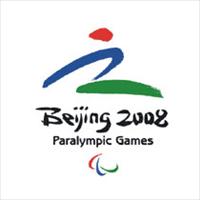There are Problems in the Air for Beijing 2008

Sixteen of China's cities have been found to have the most polluted air on Earth. The air pollution in Beijing is the worst of all the cities in China. Air pollution is one of the many environmental side effects of the 2.1 billion tons of coal produced and burned in China last year. Air pollution has led to significant health problems for the Chinese. A study by a Chinese research institute found that 400,000 premature deaths are caused every year by diseases linked to air pollution. China's Ministry of Science and Technology reports that 50,000 newborn babies are killed by air pollution a year.
Beijing already suffers traffic congestion so severe that cars sometimes idle on the freeways for hours, emitting tons of carbon based pollutants and producing smog.
Factories surround Beijing and emit large amounts of soot and carbon. Ozone, a colorless gas and critical pollutant arising in large part from car exhaust and factory emissions, regularly goes unmeasured in Beijing.
With 10 months to go before next August's Olympic games, air pollution is Beijing's biggest problem in its otherwise smooth preparations. Recently, the United Nations Environment Program criticized Beijing's progress on cleaning its air as slow and said some pollution exceeded World Health Organization standards.
Health experts are speculating whether it is even feasible for Olympic athletes to run a marathon through streets where respiratory particulate levels average 3-4 times U.S. safety levels. Olympic athletes are concerned as well. Two weeks ago, two Ethiopian middle-distance running champions announced they would forgo some events because of the "disgusting weather and air pollution." New Zealand and American athletes say they will wear face masks if necessary. Some countries are delaying their teams' arrivals in Beijing until the last possible moment to protect their athletes' performance.
Two months ago, IOC (International Olympic Committee) president Jacques Rogge said Olympic officials were prepared to take the unprecedented step of postponing some events, particularly endurance competitions, if the air pollution was too severe.
However, China has spent more than the $12 billion they promised for pollution control for the Olympic Games. The air pollution problems remain because the country's growth has simply outpaced all predictions made when the city won the Olympic bid in 2001.
In addition, Beijing has also passed some of China's most ambitious environmental measures, and in 2005 it embraced 22 tough new rules, including strict controls on industrial smoke, automobile exhaust fumes, and construction dust. Tighter vehicle emissions standards were adopted in 2003, and some public buses now run on alternative fuels such as clean natural gas. Meanwhile, the city’s heaviest polluters, such as coking plants in the southeastern suburbs, have been relocated to neighboring cities, a move that has subsequently raised concerns about worsening air pollution in these areas.
Several weeks before the 2008 Summer Olympics, in an effort to reduce air pollution, the government of China will begin shutting down industries that emit vast quantities of soot and carbon into the atmosphere surrounding the city. Though the government has yet to release a list of the industries and factories it will close, various news accounts and official statements indicate that virtually every factory in the greater Beijing area will greatly reduce operations or be completely shuttered for a period of several weeks, and that nearby coal mining operations may be shut down as well, or at least slowed, before and throughout the Olympics. In addition, auto traffic will be severely curtailed within Beijing. Clouds may be seeded to the north of the city in order to bring rain and minimize the hideous Mongolian dust storms that commonly plague China's capital.
Beijing is also considering a regional pollution-prevention-and-control mechanism to clean up the air for the Olympics. This includes information sharing and feedback systems; such as, pollution source monitoring and discharge data reports, air monitoring data reports, air quality alarm reports, and air pollution prevention and reduction conferences in various cities and provinces.
However, Olympic athletes may never know the real dangers of the air in Beijing. Beijing does not regularly measure or evaluate some serious pollutants, including ozone and some types of fine particulate matter that can easily be inhaled deep into the lungs. Meanwhile, they have refused to publicly release figures on the amount of pollutants at any given location, such as the Olympic Village or Tiananmen Square, preferring to stick with a citywide average.
China deserves credit for the use of solar power and recycling rainwater in the building of its "green" venues for the 2008 Olympic Games. However, years of environmental neglect have taken a toll on the quality of the air in Beijing and other Chinese cities. As a result, there are problems in the air for some of the Olympic Games in Beijing 2008.
About the Author:
James William Smith has worked in senior management positions for some of the largest financial services firms in the United States for the last twenty five years. He has also provided business consulting support for insurance organizations and start up businesses. Mr. Smith has a Bachelor of Science Degree from Boston College. He enjoys writing articles on political, national, and world events. Visit his website at
http://www.eworldvu.com
 Back and Next - Back and Next
Back and Next - Back and Next See Also - See Also
See Also - See Also